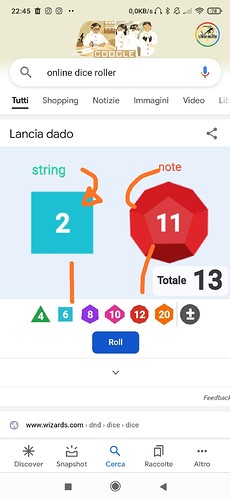Now this is something you should forget about, as fast as you can. I was and actually still am struggling with the same mindset. But the thing I realized while following @kiko’s courses, that you are not born to be good enough, but you become good enough.
If someone can learn to speak a language or learn how to operate a computer, then they sure as hell can learn how to play an instrument and apply music theory. Saying that you have to be born to be a good musician is plain stupid. That is some archaic bullshit that I unfortunately encountered too as a kid and it set me back at least a good 10 years. Ayrton Senna had a unique talent for driving cars. Would that mean that unless you’re from his bloodline you cannot learn how to drive? Nobody says that. Most of us have a driver’s licence and are pretty good at driving. Can I be the next Senna? Probably not, but I can be pretty good. Maybe I need to practice more or learn using a different strategy, but that doesn’t change the end result. Music is no different. None of the guitar gods we worship were born with the knowledge they have, not even @kiko. They practiced, studied, worked hard and they became good.
The frustrating part is that when you have to do all this learning and practicing as an adult, we seem to get impatient and second guess ourselves. It’s much easier to do it as a kid, when your brain is a sponge and you don’t have work and family. But it is most certainbly doable as an adult too and we have the benefit of @kiko’s knowledge and expertise being made available to us, presented in a time effective format.
Also, not knowing theory well enough yet shouldn’t keep you from playing. I had a question to @kiko about a F#m7b5 vs Am6 chord. Long story short: I didn’t know the theory well enough and misidentified the chord. Did it matter when I played it it the way I did? No. Sounded the same, no matter the name. I understand your need to know, I have it too. That is why I asked. I am a molecular biologist, worked in research for years and I was taught and conditioned to understand what I was doing, not just on a technical level, but theory wise too. That is the way my brain is wired. I feel more at ease when I know what I am doing. But I try to force myself a bit to just go with the flow. If it sounds good, it is good.
Now all this sounds great, but like I said I still struggle with it myself. I have bad days, I have bad moods and days when I feel like I’m regressing. But this is the mental change I mentioned in the 7Factor testimonial video: I realized all the things I talked about above, I realized that I had a bad mindset about learning and creating music and unless I change my ways, I strip myself of the chance to become better. When I signed up, I was skeptical. “Yeah, well, I got the money, never had any similar experience like this, so why not do it. But I sure as hell don’t belong here, everybody is better than me and I am hopeless anyways”. Not even a year in and I am uploading videos of myself IMPROVISING (you know, the stuff that only Guthrie Govan and Joe Pass can do, not me, the hopeless amateur…  ) and having Kiko Loureiro, an A-list guitar god commenting on my progress… I am not as good as I want to be, I am not always this positive about learning as I seem to be now, but I am able to objectively gauge my progress: I can barely listen to the first improv video I did, whereas the last one turned out to be pretty decent to my ears. I have a logbook in which I track my practice BPMs: “Jeez, I could barely do this at 100 BPM when I started, now it’s 125, no sweat”. These are the kind of positive reinforcements that made me a “believer” so to say.
) and having Kiko Loureiro, an A-list guitar god commenting on my progress… I am not as good as I want to be, I am not always this positive about learning as I seem to be now, but I am able to objectively gauge my progress: I can barely listen to the first improv video I did, whereas the last one turned out to be pretty decent to my ears. I have a logbook in which I track my practice BPMs: “Jeez, I could barely do this at 100 BPM when I started, now it’s 125, no sweat”. These are the kind of positive reinforcements that made me a “believer” so to say.
Take it one step at a time and it WILL work! 






